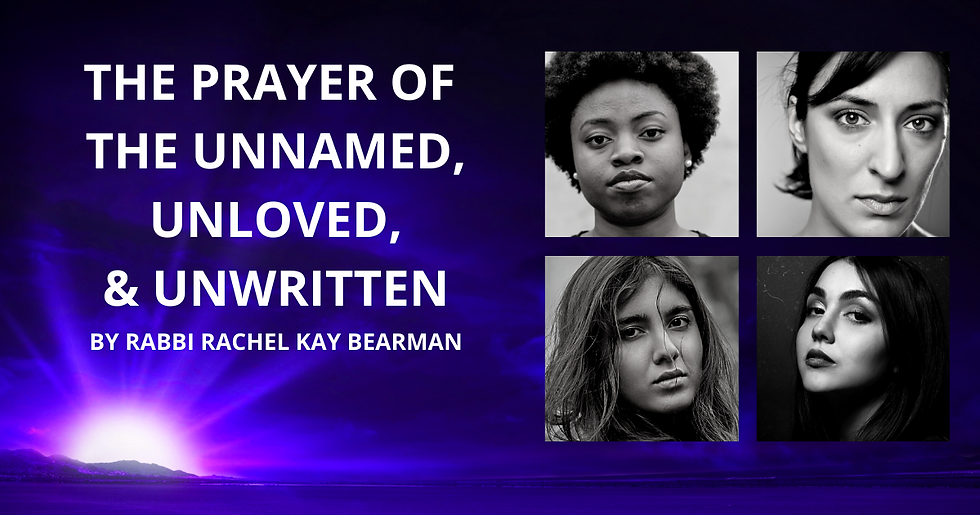A Midrash For Vayishlach
- Rachel K Bearman
- Dec 2, 2020
- 2 min read

The prayer of the unnamed, unloved, and unwritten.
We are the wives of Jacob.
We are the anonymous maids he sent into danger.
We are the wife whose body carried child after child and whose heart never knew the love of her husband.
We are the beloved one whose pain was unseen, unacknowledged, and unwritten.
Our lives are intertwined.
Our stories are inextricably, messily, hauntingly, and comfortingly enmeshed.
We are as much your ancestors as Jacob is.
And yet, you have allowed us to fade into the background even as you lift up his story, examining his every word for nuance and inspiration.
Jacob’s transformation into Israel was signalled by his limping stride.
Generations have obsessed over the meaning of his injury.
But no one seems to care that our bodies also bear wounds,
That our steps have faltered, that our hips have ached.
No one has written stories where we are transformed by our wrestling or given us new names after surviving a perilous encounter with the divine.
We call to you, our spiritual descendants, and we pray that you remember that while Jacob wrestled an angel for an evening, we spent every moment of our lives wrestling with our realities.
We are the unnamed, unloved, and unwritten.
And yet we are so much more than vessels that move within the pull of Jacob’s gravity.
We are Bilhah.
We are Zilpah.
We are Leah.
We are Rachel.
You, our children’s children, you exist not only because your patriarch wrestled with an angel but also because we wrestled your ancestors from our bodies.
You are Israel not only because your patriarch dreamt of a ladder but also because we dragged ourselves out of the depths of our despair, climbing to a place where we were able to raise the children that we had created.
We were unnamed, unloved, and unwritten not only by our husband but by our descendants. And yet we are still here.
Our strength, our fortitude, our endurance should be the story upon which our descendents built their identities.
We call to you: b’nai Bilhah, b’nai Zilpah, b’nai Leah, b’nai Rachel.
We pray that you hear our voices and honor our legacies.
We demand that you name us, love us, and tell our stories.
We demand that you do what your patriarch failed to do, what generations have failed to do.
You can change everything.
And until you do, we will remain the unnamed, the unloved, and the unwritten.
Comments